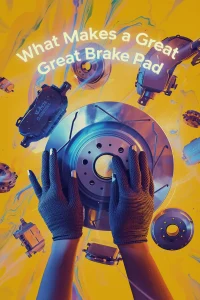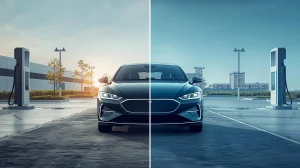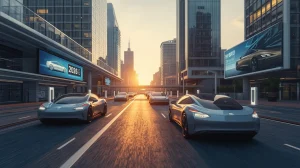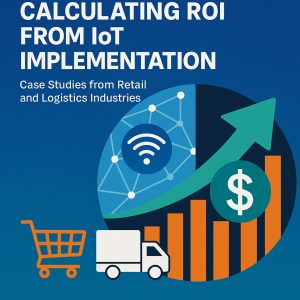The Impact of Digital Technology on the Automotive Industry

In recent years, the automotive industry has experienced a significant transformation driven by advancements in digital technology. These innovations are reshaping every aspect of the automotive ecosystem, from vehicle design and manufacturing to customer experience and mobility services. Let’s delve into the key areas where digital technology is making a profound impact:
1. Connected Vehicles
Digital technology has enabled the evolution of connected vehicles, turning cars into sophisticated mobile devices. Modern cars are equipped with internet connectivity, allowing for features such as real-time navigation, over-the-air software updates, and remote vehicle diagnostics. This connectivity not only enhances convenience for drivers but also enables automakers to gather valuable data for improving safety, performance, and user experience.
2. Autonomous Driving
Perhaps the most groundbreaking development in automotive technology, autonomous driving relies heavily on digital advancements. Complex algorithms, artificial intelligence (AI), and sensor technologies enable vehicles to perceive their surroundings and make driving decisions autonomously. Companies like Tesla, Waymo, and Uber are pushing the boundaries of self-driving technology, promising safer roads and enhanced mobility in the future.
3. Electric Vehicles (EVs)
The rise of electric vehicles is closely tied to digital technology. Advanced battery management systems, regenerative braking, and smart charging infrastructure are critical components of EVs, all powered by digital innovations. Moreover, EVs often come with sophisticated infotainment systems and digital displays, offering a seamless and connected driving experience.
4. Digital Manufacturing
Automotive manufacturing processes have been revolutionized by digital technologies like robotics, 3D printing, and artificial intelligence. These technologies improve efficiency, reduce production costs, and enable greater customization in vehicle assembly. Digital twins—virtual replicas of physical vehicles—allow manufacturers to simulate and optimize production workflows before physical implementation, minimizing errors and maximizing productivity.
5. Customer Experience
Digital technology has transformed the way customers interact with automotive brands. From online vehicle configurators and virtual showrooms to seamless digital purchasing experiences, automakers are leveraging digital platforms to engage customers throughout their journey. Augmented reality (AR) and virtual reality (VR) technologies are also being used to provide immersive experiences, allowing customers to visualize and interact with vehicles before making a purchase.
6. Data Analytics and Predictive Maintenance
The influx of data from connected vehicles has opened up new possibilities for data analytics and predictive maintenance. Automakers can now collect real-time data on vehicle performance and driver behavior, enabling proactive maintenance and personalized services. Predictive analytics help identify potential issues before they occur, reducing downtime and enhancing overall vehicle reliability.
7. Mobility Services
Digital technology has catalyzed the growth of mobility services such as ride-sharing, car-sharing, and subscription-based models. Apps and platforms facilitate seamless access to transportation, reducing the need for car ownership in urban areas. Furthermore, these services leverage data analytics to optimize fleet management and improve operational efficiency.
The impact of digital technology on the automotive industry is profound and far-reaching. As the pace of innovation accelerates, we can expect even more transformative changes, including increased automation, enhanced sustainability, and novel mobility solutions. Embracing digital transformation will be crucial for automakers and stakeholders to stay competitive and meet the evolving needs of consumers in this dynamic industry landscape.








1 thought on “The Impact of Digital Technology on the Automotive Industry”